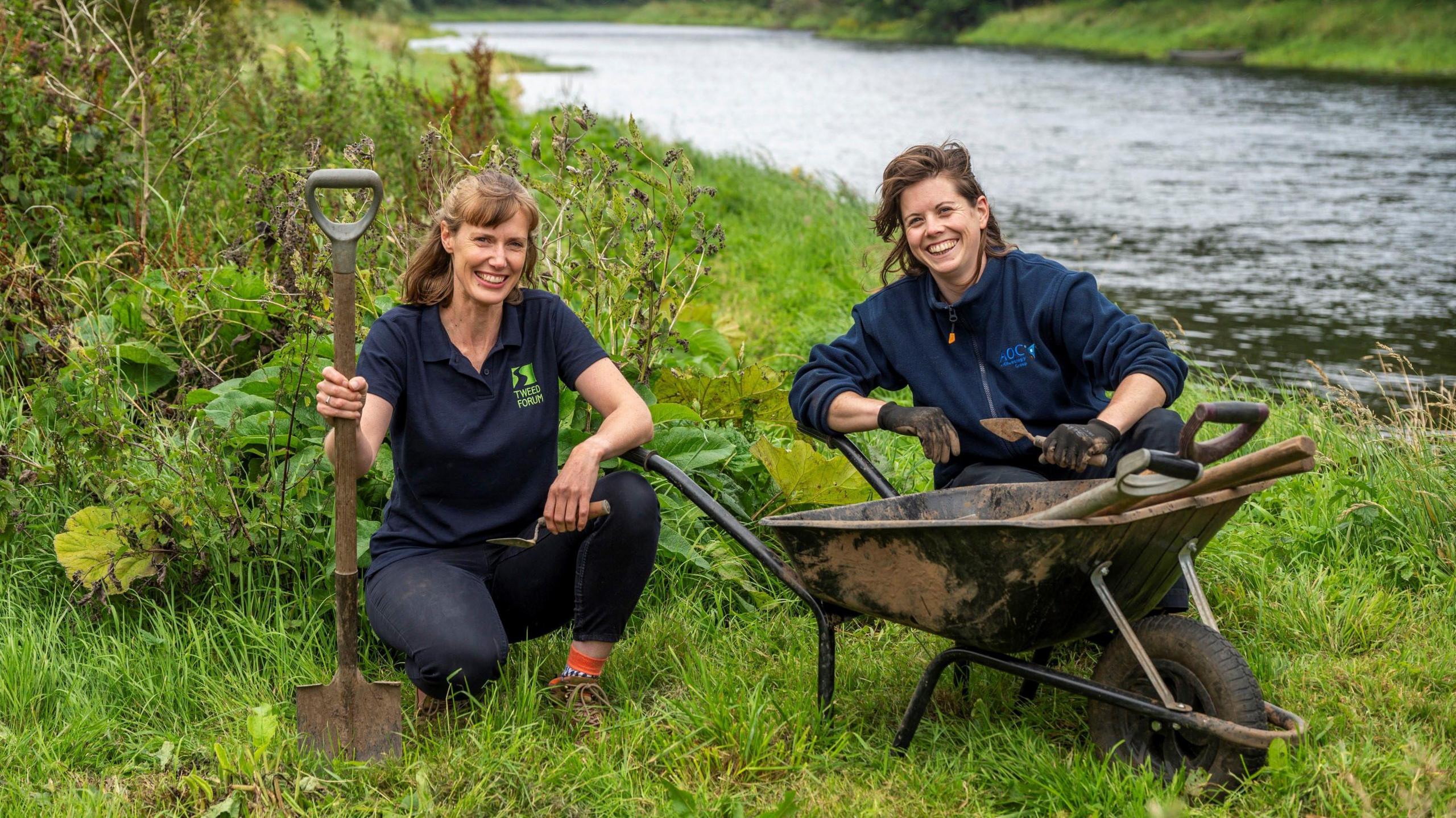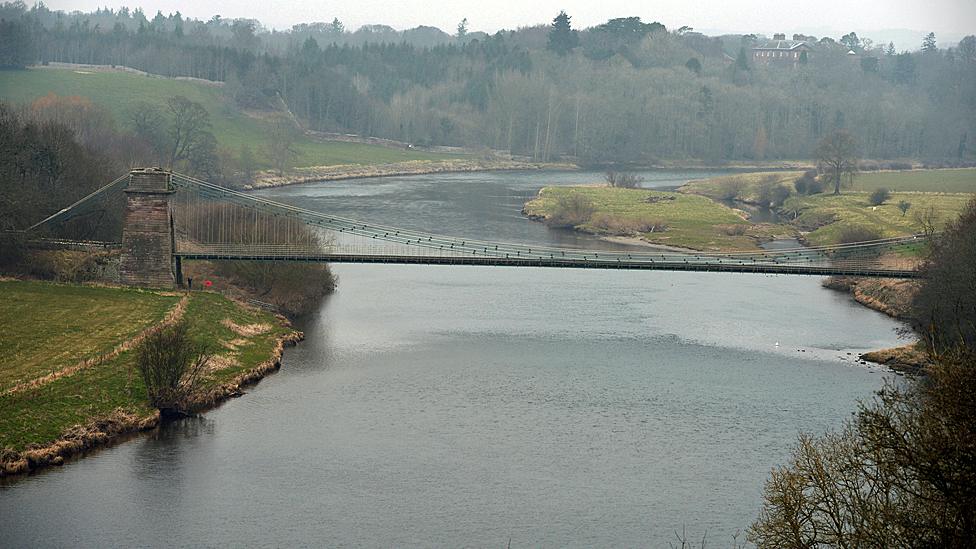Bid launched to unearth river's hidden history

The hidden history of the River Tweed is being explored in a new project
- Published
A bid has been launched to unearth the hidden history along the 113-mile (180km) route of the River Tweed.
The new community-based archaeology project hopes to shed new light on activity at sites from Moffat to Berwick-upon-Tweed.
Uncovering the Tweed has £360,000 on offer over three years to encourage people to research, survey and excavate around the river.
It is part of the wider £25m Destination Tweed initiative looking at the creation of a "source to sea" River Tweed trail.
The new programme is being run by AOC Archaeology Group, which is already working with local people to develop a programme of proposed activity.
The first site identified for excavation is Adie's Brae, a scooped settlement on Borders Forest Trust land at Ericstane near Moffat.
Scooped settlements are enclosures that have been cut into the hillside.
They are found exclusively in south-east and central southern Scotland and typically date from the Middle Iron Age (about 200BC to 400AD).
The excavation work will aim to accurately date the site, investigate the structure of the enclosure and explore any traces of buildings within the interior.
Get in touch
What stories would you like BBC News to cover from the south of Scotland?
Uncovering the Tweed is being funded by Historic Environment Scotland (HES), The National Lottery Heritage Fund and the Fallago Environment Fund.
Destination Tweed project officer, Charlotte Douglas, said: "From prehistoric settlements to Roman forts and medieval castles, the Tweed has witnessed centuries of human history.
"Our Uncovering the Tweed project will enable local people to work alongside a team of professional archaeologists to learn new skills and help us discover more about life on the river in the past.
"We're excited about what will be uncovered."
Susan O’Connor, head of grants at HES, said the "fantastic project" could have "far-reaching positive outcomes across a range of audiences and communities".
Related topics
- Published13 March 2020
